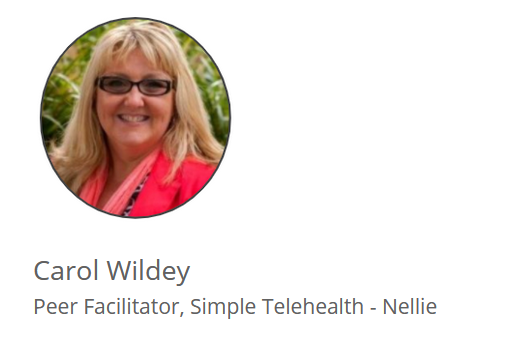05 August 2020

Carol has been working in the South Eastern Melbourne Primary Health Network (SEMPHN) for nearly 3 years. She uses her previous knowledge and experience in healthcare, alongside drawing on the learning and evidence-based psychology behind Flo, to help support successful implementation of ‘Nellie’ (Flo’s Australian cousin) to primary care teams. Carol has kindly shared her experience of being a Peer Facilitator for Nellie.
What is your background and role within your organisation?
My role with SEMPHN is Peer Facilitator, Simple Telehealth – Nellie. I started working at SEMPHN at the end of 2017 when Nellie was just starting to be rolled out in our Primary Health Networks catchment in South Eastern Melbourne. Prior to moving to Melbourne from the UK in 2011, I had worked for the NHS as a dietitian for over 20 years in various positions. I mainly worked in the area of diabetes education with a focus on supporting patient self-management, patient-centred care, and care and support planning for long-term conditions (chronic disease). When I moved to Australia I worked as a research project manager across a diverse range of research projects including diabetes prevention for women post-Gestational Diabetes, cancer and health literacy.
My role at SEMPHN involves working with primary care teams to identify where Nellie can be used to supplement existing models of care (by fitting in easily with them) in new and innovative ways to benefit the team and patients. E.g. this, from the published paper: “… can be implemented into routine primary care at scale with little impact on clinician workload…”.
What did you set out to achieve with Nellie and how did you go about it?
We set out to establish whether Nellie was a valid, useful and effective tool to use within the Australian primary health care context. It’s always challenging to introduce new interventions and tools to busy general practices and evidence suggests that it takes up to 17 years to embed new evidence-based interventions in health care. Okay, so we didn’t have 17 years up our sleeves, but the SSHC Community of Practice has been a valuable factor by being able to draw on others’ experiences and pathways with Flo and Annie.
We used our PHN communications channels to talk about Nellie and asked for teams to contact us if they were interested. We visited interested practices and gave them a live demo of Nellie. Most of these teams were excited about the prospect of using Nellie and immediately thought about specific patients and cohorts who they thought Nellie’s friendly messages and interactions could help. Many of them also identified how they thought that Nellie could make their work lives easier, especially with Nellie’s intuitive interface – this provided crucial motivation for them to embed Nellie in their workflow.
The key message was always, start small. We worked with clinicians to identify how they thought they would like to use Nellie and collaboratively designed suitable pathways. Some teams were more interested in using Nellie to monitor their patients remotely, such as using a Blood Pressure monitoring protocol. Others were much more interested in how Nellie could help their patients establish healthier habits through sustained behaviour change, such as by increasing their physical activity. As Nellie uses basic SMS messaging, she is easily accessible and familiar to most people, however we always emphasised the importance of making sure they screened their patients for their capacity to use and interact with Nellie, but also the importance of assessing an agreed health-related goal which was important to the patient. A key element to creating sustained change is that the clinician must work together with the patient to help them identify an action plan to achieve their goal, and one that the patient felt confident they could achieve and were ready to commit to. The Nellie protocol to support this action plan is then highly likely to be both helpful and effective.
We now have around 50 teams actively using Nellie with good feedback from both patients and clinicians. As part of evaluation for pathways and patient experience, we build Net Promoter Scores into most pathways where we are able to measure patient feedback. The results remain good! We are also using Nellie to measure Patient Reported Outcomes Measures, or PROMs, using a tool called howru from R-Outcomes to track patient status measures over time.
Were there any surprises?
Patients often think of Nellie as “she” or “her” – as if she is a friend looking out for them. During a time where there are many different health apps available, I have been amazed that something as simple as a persona-based SMS service can have such a profound impact on patient outcomes. I spent many years as a clinician, struggling to help my patients to change certain behaviours such as their diet, activity levels, smoking status, alcohol intake, engagement with medication regimens etc etc etc. Change is hard. Change is especially hard for people with complex health needs, but Nellie is something unique! I now hear stories about how Nellie has helped people who may have been struggling for many years. Small changes can lead to huge improvements in people’s quality of life, and that’s what’s really important.
How does Nellie fit with your organisational vision/current strategies?
I work in the digital health team. Our organisation’s strategy has digital health as one of its core pillars, and Nellie is a perfect fit. It underpins the work across the entire organisation. One strategic aim is to reduce the number of potentially preventable hospitalisations. Nellie has already helped many primary care patients to better self-manage their health at home, with better outcomes through her persona-based messages.
What do you consider your biggest success with Nellie?
Having so many primary care teams use Nellie without any financial incentives! We have great feedback from patients across a broad range of different protocols used. They have really appreciated the extension of clinician-led care that Nellie provides in their day-to-day lives in a friendly and non-judgemental way.
How do you engage your clinicians and wider organisation with Nellie?
We have a Nellie page on our website and use ‘Basecamp’ for our local community of practice, as well as regular communications with practices via our regular SEMPHN newsletters. One of the key drivers for implementing Nellie is understanding how using Nellie can make clinicians’ lives easier. Talking to clinicians, with a focus on the quadruple aim of better outcomes, improved patient experience, lower cost and importantly, improved clinician experience, helps us to frame Nellie in a way that engages clinicians in thinking about how they might use Nellie – and it’s different for every team.
What are the future plans with Nellie?
We will continue to work with our primary care teams to make improvements where we can to deliver an even better program. We’re also thinking about engaging with local partners to use Nellie to improve the integration of health services and reduce organisational barriers in areas such as shared care, hospital discharge, mental health and addiction services. Watch this space!
#Sustained Behaviour Change #Action Plan #Evaluation #Nellie #Community of Practice #SEMPHN #South Eastern Melbourne Primary Health Network #Australia #TotallyUnique
